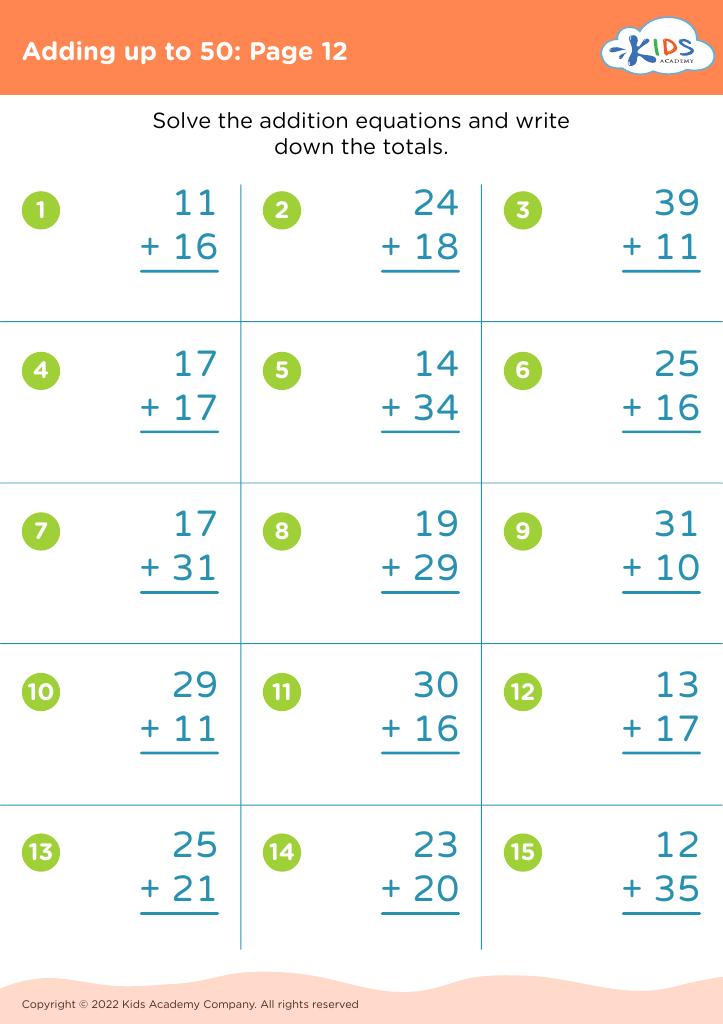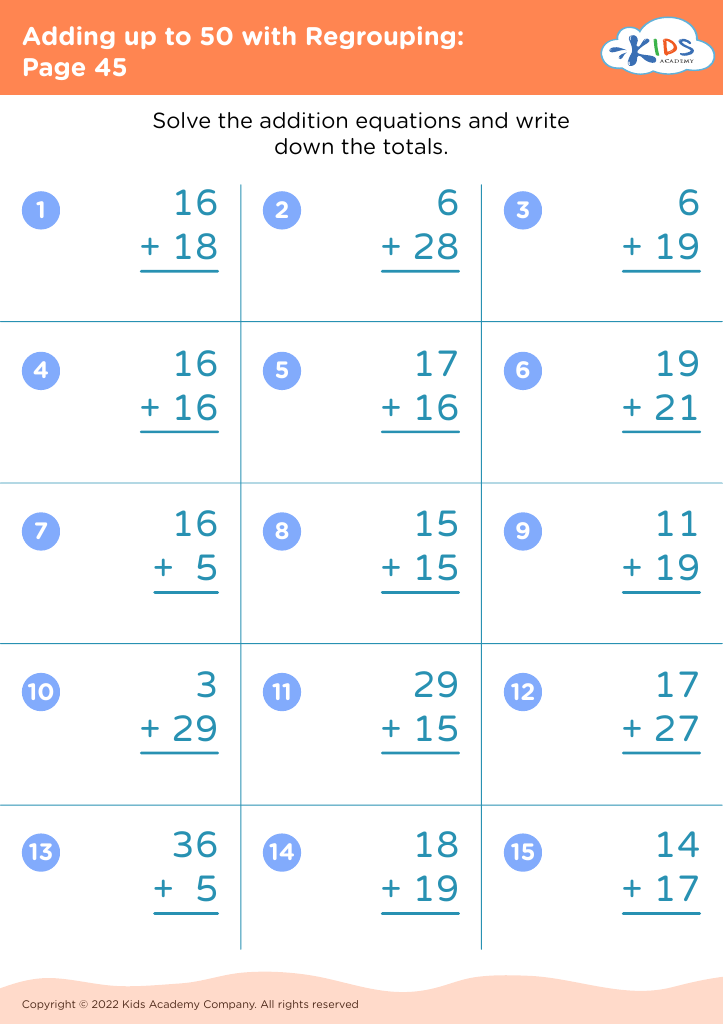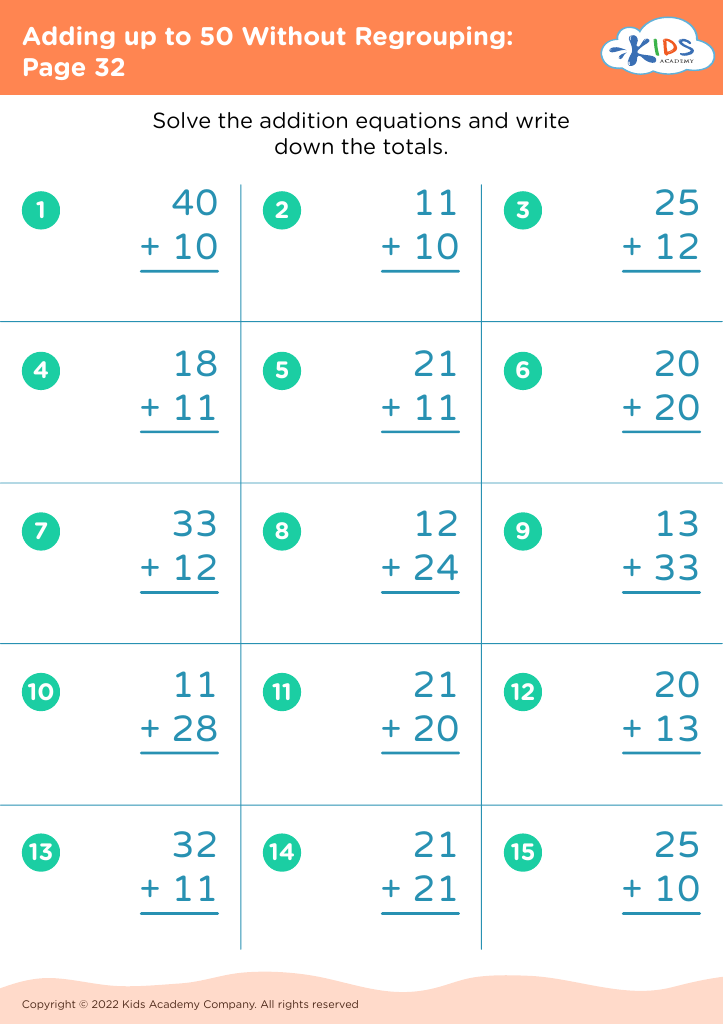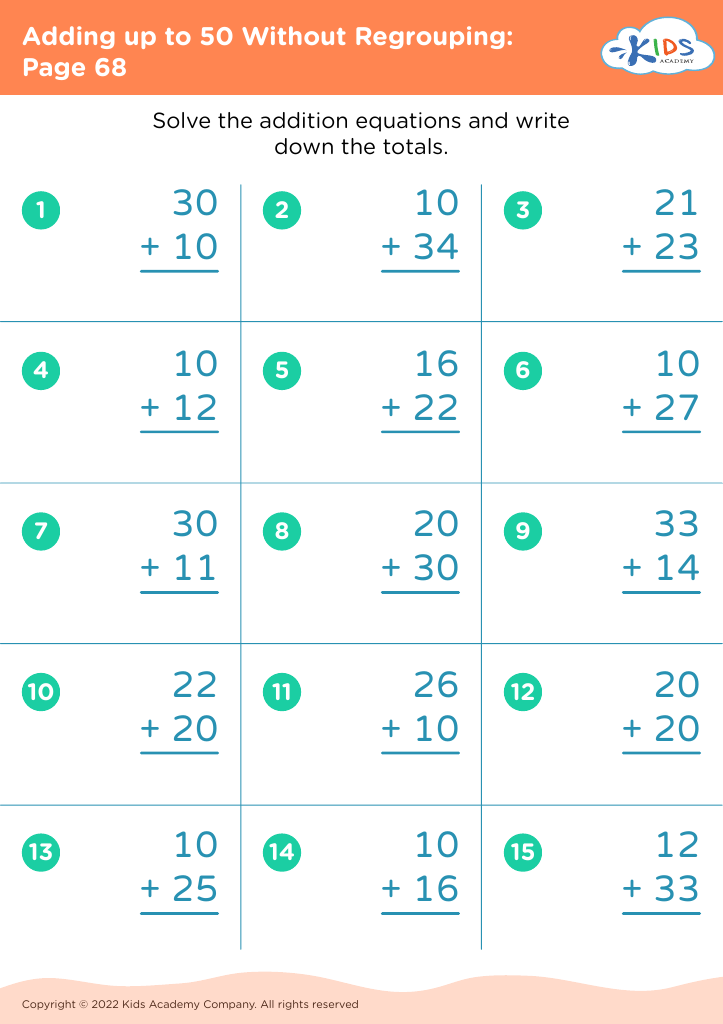Basic Addition Skills Adding up to 50 Worksheets for Ages 7-8
5 filtered results
-
From - To
Enhance your child's mathematical journey with our "Basic Addition Skills: Adding Up to 50" worksheets, specifically designed for ages 7-8. These engaging resources aim to build foundational skills in addition, helping young learners confidently tackle math problems up to 50. Featuring a variety of fun activities, including interactive exercises and visual aids, these worksheets cater to different learning styles, ensuring an effective learning experience. As children practice addition in an enjoyable way, they improve their problem-solving skills and number sense. Perfect for home learning or classroom use, these materials will make mastering addition both fun and rewarding!
Basic addition skills are crucial for children aged 7-8, as they serve as the foundation for further mathematical understanding. At this age, students are expected to add numbers up to 50, developing both accuracy and confidence in their abilities. Proficiency in basic addition not only helps children solve everyday mathematical problems but also fosters critical thinking and problem-solving skills essential for higher-level math concepts, such as subtraction, multiplication, and division.
Parents and teachers should prioritize these skills, as they directly impact a child’s performance in school and their overall confidence. When students can reliably add and perform mental math, they are more likely to engage in math-related discussions, participate in group activities, and tackle complex problems without fear of failure. Furthermore, strong addition skills are necessary for scientific reasoning, budgeting, time management, and logical thinking in real-life situations.
By supporting the development of these fundamental skills, parents and teachers empower children to succeed academically and socially. Effective early math education lays the groundwork for lifelong learning and encourages positive attitudes toward mathematics, helping to prevent math anxiety and fostering a love for the subject that can carry into adulthood. Moreover, establishing a strong math foundation can significantly enhance a child's future educational and career opportunities.

















